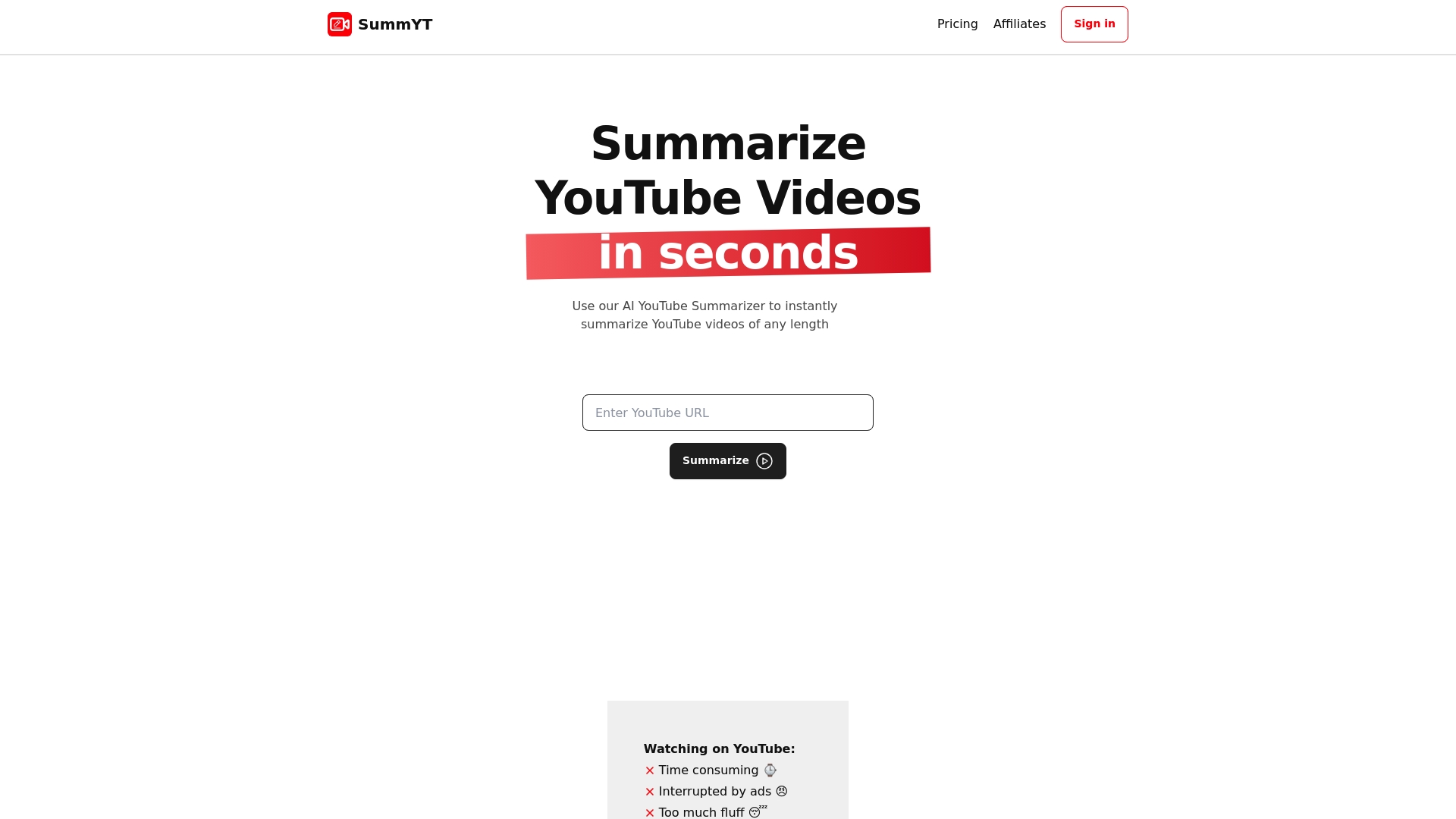Understanding Why Learn with Summaries for Success

Summaries might sound simple, but they are actually one of the most powerful tools for turning complex ideas into clear knowledge. MIT research shows that learning from summaries boosts retention and understanding far beyond traditional methods. Most people think more detail means better learning, but the science says the opposite. The real advantage comes when you strip information down so your brain can focus on what matters most.
Table of Contents
- What Are Summaries and Their Purpose?
- The Importance of Learning Through Summaries
- How Summaries Enhance Comprehension and Retention
- Practical Applications of Summarization in Different Fields
- The Role of Summaries in Efficient Information Processing
Quick Summary
| Takeaway | Explanation |
|---|---|
| Summaries enhance learning efficiency | Summaries condense information, allowing for quick comprehension and retention without overwhelming detail. |
| They foster critical thinking skills | Engaging with summaries requires analysis and differentiation between key and secondary information, boosting cognitive abilities. |
| Applicable across diverse fields | Professionals use summaries in healthcare, academia, journalism, and more to streamline information processing and improve communication. |
| Summaries support knowledge retention | The practice of summarization activates neural processes that enhance memory formation and long-term information storage. |
| Facilitate faster decision-making | Clear, concise summaries help in making quick, informed decisions in fast-paced environments, especially amidst information overload. |
What Are Summaries and Their Purpose?
Summaries represent strategic knowledge condensation techniques that transform complex, lengthy information into concise, digestible formats. They provide rapid comprehension by extracting the most critical insights, ideas, and key points from original content while preserving the fundamental meaning and core message.

The Core Function of Summaries
At their essence, summaries serve as intellectual shorthand. They enable individuals to quickly understand substantial information without consuming extensive time and mental energy. According to research from MIT’s Learning Sciences department, summaries help learners process and retain information more effectively by presenting concentrated knowledge packets.
Effective summaries typically include:
- Primary arguments or key points
- Critical supporting evidence
- Essential context and background information
- Concise conclusions or insights
Practical Applications of Summaries
Summaries are versatile tools applicable across numerous domains. Students use them for efficient study techniques, professionals leverage them for quick research, and researchers employ them to rapidly assess academic literature. Our guide on understanding summaries in research provides deeper insights into their academic applications.
The purpose of a summary transcends mere brevity. It represents a strategic approach to knowledge management, enabling faster learning, improved comprehension, and more effective communication by distilling complex information into clear, accessible formats.
The Importance of Learning Through Summaries
Learning through summaries represents a transformative educational strategy that dramatically enhances knowledge absorption, retention, and comprehension across multiple learning environments. This approach enables individuals to navigate complex information landscapes more efficiently and effectively.
Cognitive Processing and Knowledge Retention
Summaries fundamentally alter how our brains process and store information. Research from academic learning strategies indicates that summarization activates critical cognitive mechanisms that improve understanding. When learners create or engage with summaries, they must actively analyze content, distinguish between essential and peripheral information, and reconstruct key insights in their own mental framework.
Key cognitive benefits of summary-based learning include:
- Enhanced information filtering skills
- Improved critical thinking capabilities
- Accelerated comprehension of complex subjects
- Increased long-term memory retention
Strategic Learning Efficiency
Learning through summaries represents a time-efficient approach to knowledge acquisition. By condensing extensive materials into concentrated knowledge packets, learners can rapidly assimilate information without getting overwhelmed by excessive details. Our comprehensive guide on summarizing educational videos provides deeper insights into this transformative learning technique.
Professionals, students, and researchers consistently leverage summaries to optimize their learning processes, recognizing that understanding core concepts quickly is often more valuable than exhaustive but time-consuming study methods.
The following table compares traditional detailed learning methods with summary-based learning, highlighting how each approach impacts efficiency, comprehension, and retention.
| Learning Approach | Information Density | Cognitive Load | Time Efficiency | Retention & Comprehension |
|---|---|---|---|---|
| Traditional Full-Detail Learning | High (all details kept) | High | Time-consuming | Lower retention, slower comprehension |
| Summary-Based Learning | Low (core points only) | Reduced | Fast (focused on essentials) | Higher retention, faster comprehension |
How Summaries Enhance Comprehension and Retention
Summaries serve as powerful cognitive tools that transform complex learning experiences by restructuring information in ways that optimize mental processing and long-term knowledge storage. They act as strategic bridges between raw information and meaningful understanding, enabling learners to navigate intricate intellectual landscapes more effectively.
Neurological Mechanisms of Summary Learning
The human brain processes summaries differently compared to consuming full-length content. Cognitive science research reveals that summarization triggers active neural engagement, requiring learners to deconstruct and reconstruct information critically. This process activates multiple cognitive regions, promoting deeper processing and more robust memory formation.
Key neurological benefits of summary-based learning include:
- Enhanced synaptic connections
- Improved neural pathway development
- More efficient information encoding
- Accelerated pattern recognition skills
Strategic Information Internalization
Summaries enable learners to distill complex concepts into manageable cognitive chunks, reducing cognitive load and facilitating more efficient knowledge absorption. Our comprehensive guide on video summary techniques provides additional insights into this transformative learning approach.
By compelling learners to identify core ideas, distinguish between primary and secondary information, and reconstruct knowledge in personalized frameworks, summaries transform passive consumption into active intellectual engagement. This methodical approach not only improves immediate comprehension but also significantly enhances long-term retention and recall capabilities.
This table presents key cognitive and neurological benefits of summary-based learning, providing a clear overview of how summaries influence brain function and information retention.
| Benefit | Description |
|---|---|
| Enhanced Synaptic Connections | Promotes stronger connections between neurons |
| Improved Neural Pathway Development | Supports the formation of efficient routes for memory recall |
| More Efficient Information Encoding | Facilitates storing information in a condensed, retrievable form |
| Accelerated Pattern Recognition Skills | Helps identify and internalize main ideas faster |
Practical Applications of Summarization in Different Fields
Summarization transcends traditional learning boundaries, emerging as a versatile strategy deployed across multiple professional domains. By distilling complex information into concise, meaningful insights, summarization enables faster decision making, enhanced communication, and more efficient knowledge transfer.
Professional Knowledge Management
Research in medical informatics demonstrates how summarization techniques are critical in translating complex scientific research into actionable insights. Professionals leverage summaries to rapidly assimilate critical information without getting overwhelmed by exhaustive details.
Key professional domains benefiting from summarization include:
- Healthcare and medical research
- Academic and scientific research
- Journalism and media analysis
- Legal and policy documentation
- Corporate strategy and market intelligence
Cross-Disciplinary Communication Strategies
Summarization acts as a universal language that bridges knowledge gaps across different professional contexts. Our comprehensive guide on real-time content summarization explores how modern professionals use summarization to streamline information processing.
The ability to quickly extract and communicate core insights becomes increasingly valuable in a world characterized by information overload. By transforming lengthy documents, complex research papers, and extensive reports into precise, meaningful summaries, professionals can communicate more effectively, make faster decisions, and maintain a competitive edge in their respective fields.
The Role of Summaries in Efficient Information Processing
Information processing represents a complex cognitive mechanism where summaries function as strategic navigation tools, enabling individuals to efficiently filter, organize, and internalize vast amounts of data with remarkable precision and speed. These condensed knowledge representations serve as intellectual compasses that guide learners through intricate informational landscapes.
Cognitive Load Reduction Strategies
Research from cognitive psychology demonstrates that summaries dramatically reduce mental strain by minimizing unnecessary cognitive expenditure. By presenting essential information in concentrated formats, summaries prevent mental overwhelm and facilitate more streamlined information absorption.
Key cognitive processing advantages include:
- Rapid information comprehension
- Minimized mental fatigue
- Enhanced information retention
- Improved decision making speed
- Simplified complex concept understanding
Strategic Knowledge Optimization
Summaries transform information processing from an exhaustive, time-consuming task into a targeted, efficient strategy. Our guide on understanding concise communication techniques provides deeper insights into this transformative approach.
By compelling learners to extract core ideas, distinguish critical information from peripheral details, and reconstruct knowledge in personalized mental frameworks, summaries convert passive information consumption into active intellectual engagement.

This methodical approach not only accelerates comprehension but also establishes more robust neural connections, enabling faster and more accurate information processing across diverse learning and professional contexts.
Unlock Faster, Smarter Learning With AI Video Summaries
Many readers of this article know the struggle of information overload when learning from lengthy videos and complex content. The challenge is real. Summaries strip away distractions and allow you to quickly grasp key ideas, but building them yourself takes time. Imagine having every YouTube lecture, tutorial, or webinar instantly compressed into clear, focused highlights—all while boosting your comprehension and retention, just as the article explains.

Experience this transformation with SummYT. SummYT uses advanced AI to generate concise, actionable summaries from any YouTube video, so you can achieve deeper understanding in minutes instead of hours. Whether you are a student racing through lectures, a professional keeping up with industry trends, or a dedicated lifelong learner aiming to conquer your “watch later” list, SummYT brings you the most important knowledge without wasted effort. Start taking control of your time and reach your goals faster. Visit SummYT now and try unlimited video summaries today.
Frequently Asked Questions
What are the benefits of learning with summaries?
Learning with summaries enhances information retention, comprehension, and cognitive processing by distilling complex concepts into manageable pieces, allowing for quicker understanding and effective learning.
How do summaries improve cognitive processing?
Summaries stimulate active engagement with content, requiring learners to analyze and reconstruct key insights, which strengthens neural pathways and promotes better long-term memory retention.
In what fields can summarization be applied effectively?
Summarization is applicable in various domains, including healthcare, academic research, journalism, legal documentation, and corporate strategy, helping professionals make informed decisions quickly.
What techniques can be used to create effective summaries?
To create effective summaries, focus on identifying primary arguments, critical supporting evidence, essential context, and concise conclusions, ensuring that the core meaning is preserved while making the content digestible.




